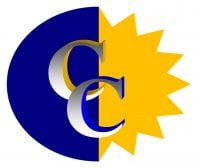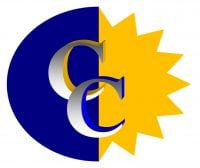About Riverwoods Behavioral Health in Georgia
Riverwoods Behavioral Health is a reputable drug treatment center located in Riverdale, Georgia. With certifications from JCAHO, NAATP, and SAMHSA, this facility is recognized for maintaining high standards of care and treatment. As a 75-bed facility, Riverwoods Behavioral Health offers a range of services for individuals suffering from drug addiction, alcoholism, dual diagnosis, opioid addiction, and substance abuse. Their treatment options include detoxification, dual-diagnosis programs, intensive outpatient programs, partial-hospitalization, and inpatient care. They are also accredited by various organizations, ensuring that patients receive quality treatment and care.
At Riverwoods Behavioral Health, individuals struggling with addiction and substance abuse can access a variety of comprehensive services. These services are designed to address different aspects of addiction and provide patients with the support they need to recover. The facility offers detoxification programs to help individuals safely and comfortably withdraw from substances. Additionally, they provide dual-diagnosis programs, offering treatment for individuals with co-occurring mental health disorders. For those who require a more intensive level of care, Riverwoods Behavioral Health offers inpatient treatment. They also provide partial-hospitalization and intensive outpatient programs, allowing individuals to receive treatment while still maintaining their daily responsibilities.
Genders
Ages
Modality
Additional
Accreditations
SAMHSA
NAATP

JCAHO
Conditions and Issues Treated
Some addicts can benefit from substance abuse treatment, which is designed to help them become and remain sober without the use of medications. These programs are typically used by those struggling with drugs like marijuana or hallucinogens. However, they might be beneficial for those with a co-occurring mental health disorder like schizophrenia, major depression or bipolar disorder.
During this type of treatment, the addict will meet with therapists and other professionals on a regular basis to learn coping skills and healthy ways to deal with their addiction and mental health disorder.
Treatment programs often combine medications with counseling, support groups and even medical services like those found in hospitals or doctor’s offices. There are also detoxification services that addicts can use to get sober and avoid severe withdrawal symptoms.
Opioids are a group of drugs that include substances such as heroin, morphine, and oxycodone. These drugs activate opioid receptors in the brain, which produce pleasurable feelings. Opioid addiction occurs when drugs are abused at increasing rates or increasing amounts because the body becomes tolerant of them.
Opioid addiction is typically diagnosed when drug abuse becomes a typical behavior that interferes with an individual’s ability to function daily. The use of the substance results in consequences like legal problems.
Treatment for opioid addiction varies depending on each individual’s needs. Some treatments focus on replacing opioids with other drugs that have similar effects of reducing withdrawal symptoms. Other treatments aim to reduce the risk of relapse by providing psychological support or using more natural methods.
A drug rehab center that uses Dual Diagnosis is more likely to be successful in rehabilitating a person. Dual diagnosis helps to identify and treat any co-occurring disorders. It is essential to screen for both addiction and any untreated mental health issues. A dual diagnosis gives rehab the means to treat addiction while restoring mental and emotional health.
About 70% of patients with drug addiction have at least one other psychiatric diagnosis. Fortunately, dual diagnosis treatment is a proven model that has been highly effective.
Levels of Care Offered
This center offers a variety of custom treatment tailored to individual recovery. Currently available are Detox, Dual-Diagnosis, Inpatient, Intensive Outpatient, Partial-Hospitalization, with additional therapies available as listed below.
Detox, or detoxification, is the method of weaning a person’s body from the toxic substance(s) they have abused. This is a slow process under medical supervision and one that should occur for almost all individuals. As detox can cause medical complications, it should always be performed by experienced medical professionals in a safe setting.
Inpatient rehab means you live there while your addiction or co-occurring disorder is treated. Prescribed medications are used along with counseling.
This type of rehabilitation provides a drug-free environment for people who struggle with chronic/long-term addiction (or their own home). Jobs or school can be put on hold until after the stay to focus solely on recovery.
An intensive outpatient program is usually the first phase of addiction treatment. It provides relief for those addicted, but not ready to commit to an inpatient setting. IOPs consist of a daily 3 to 5-hour program, and there is a required number of hours per week. The goal here is to teach patients healthy coping skills, such as stress management.
For people looking for drug treatment, partial hospitalization programs offer an alternate option to inpatient rehab or residential treatment. Patients attend therapy sessions for a set number of hours each day. They can typically visit family or go home during non-therapy hours.
Partial hospitalization programs can last from one to six months and are appropriate for patients with acute addiction symptoms. Riverwoods Behavioral Health offers a partial hospitalization program in , and is a good option for people looking for drug treatment.
Therapies & Programs
During individual therapy at Riverwoods Behavioral Health in , the person in recovery meets with a therapist one on one to go over their situation and learn from past mistakes. The counselor or therapist will use this time to address the causes of addiction, triggers, and any mental issue or dual diagnosis. They will also address aftercare plans, giving them the best chances of long-term sobriety.
This therapeutic process is very intense and challenging to go through. Some clients may find it easier to open up with someone apart from their family or loved ones who understand their struggles and experience with addiction.
Family therapy is designed to help addicts get clean and sober by using what they love the most; their family. Most drug treatment centers make it mandatory that the addict’s family attend therapy sessions, which is great because having everyone there to support them makes it much easier for them to get clean. Not only are they surrounded by people who want them to get better, but everyone is there because they want the best for them, not because they feel like they have to be.
Drug addicts are often surrounded by resentful or uneducated family members who would, at times, rather see them stay addicted because it makes their own lives easier. Sometimes they don’t understand what the addiction is or how they play a part in it. They know that during and after the addict’s sobriety journey, they will face challenges and changes that they aren’t sure how to handle. This can be very tough for an addict to go through on their own, which is why it’s so important that they have the support of their family. Just because someone is an addict does not mean that they don’t deserve the love and support of those around them.
Addicts in Riverdale, GA can find support in group therapy at Riverwoods Behavioral Health by finding peers who understand their situation and being held accountable. They also learn to develop faith, understanding, and insight into their addiction through shared conversations.
Group Therapy is employed by drug treatment centers to provide the recovering addict with a platform to talk about their feelings and experiences. It also provides for an opportunity to learn from other addicts who have successfully overcome their addiction. It is recommended that all group members be recovering addicts for this type of therapy to work.
Trauma therapy allows people who struggled with a past trauma to face the situation and learn from it. Many people go through traumatic events at an early age that later leads them into addiction as adults. By addressing this issue during treatment at Riverwoods Behavioral Health in [/type], you can move forward with your recovery process and take back control of your sober future, too!
Traumas are one of the most common causes of psychological disorders such as Addiction Disorder. It’s often found among those diagnosed with Addictive Disorders because traumatized individuals have strong emotions or thoughts related to their traumas, leading to addictive behaviors.
Dialectical behavior therapy (DBT) is a cognitive-behavioral therapy that focuses on eliminating specific negative thoughts, such as suicidal thoughts. These negative thoughts can potentially lead to an individual inflicting self-harm. It helps treat patients exhibiting uncontrollable emotions, intense mood swings, and borderline personality disorders.
The term “Dialectic” means the integration of opposites. In substance abuse, DBT refers to accepting the patient’s addiction and working to change their thoughts and behavior. It improves life skills such as controlling intense emotions without reacting impulsively, resolving interpersonal conflicts effectively, and promoting awareness about self and others.
Cognitive Behavioral Therapy (CBT) helps addicts comprehend the causes of their substance abuse and the consequences that follow. The treatment’s goal is to help addicts gain self-control and maintain abstinence from drugs and alcohol over the long term. Through CBT, clients learn to recognize and avoid high-risk situations and cope with challenging situations when they arise.
Many people who struggle with addiction in Riverdale, Georgia also have trouble managing their daily responsibilities after treatment. With this type of therapy, addicts are taught how to manage their time, attain specific goals, and take care of all facets of their lives without the influence of drugs or alcohol.
During these sessions, therapists will work with addicts to identify personal values and goals. They will then help addicts set goals for achieving those values and standards. In the process, therapists help addicts develop strategies for fulfilling their goals and successfully managing their responsibilities.
In many cases, this type of therapy is used in conjunction with other types of addiction treatment services to address specific issues that affect a recovering addict’s ability to stay sober.
Nutrition therapy has been used as a treatment modality for addiction recovery and in eating disorders for adults, adolescents, and children. Specific nutrients have been identified that influence neurotransmitters associated with reward pathways of the brain. Carbohydrate loading with complex carbohydrates to elevate serotonin levels was effective in treating bulimia nervosa. This approach prompted researchers to explore the use of this type of nutritional intervention in other disorders.
Nicotine replacement therapy is a popular method of treatment that helps individuals overcome their addiction to cigarettes by providing them with safer alternatives. Nicotine replacement options can include:
- Inhalers
- Gum
- Patches
These treatments are often used in combination with other therapies, such as cognitive behavioral therapy or motivational interviewing, to help individuals more easily transition into a smoking-free lifestyle.
Patient Experience
Creative Arts
Creative arts therapy, or expressive therapy, is beneficial to those battling addiction. It can include writing, music, drama, art, and other forms of self-expression. It improves the patient’s emotional state and allows them to focus on something other than addiction. It allows Riverwoods Behavioral Health to examine how their feelings and emotions play out through the creative process in Riverdale, GA.
Recovery can be a difficult process, but it is possible to heal and move forward with the help of creative arts therapy. If you or a loved one is struggling with addiction in , , consider using creative arts therapy to help the recovery process.
Experiential Therapy at Riverwoods Behavioral Health
Experiential therapy is a type of treatment involving immediate, intense experiences designed to manage addiction. Experiential therapy is beneficial for:
- People who are seeking to overcome an addiction but have difficulty focusing on treatment goals
- People with short attention spans due to high levels of stress or difficulty concentrating
- People who are afraid of engaging in treatment due to negative past experiences
Payment Options Accepted
For specific insurance or payment methods please contact us.
Is your insurance accepted?
Ask an expert, call (888) 674-0062
Additional Details
Specifics, location, and helpful extra information.
Riverdale, Georgia 30274 Phone Number(855) 737-4927 Meta DetailsUpdated November 25, 2023
Staff Verified
Riverwoods Behavioral Health Patient Reviews
There are no reviews yet. Be the first one to write one.
Riverdale, Georgia Addiction Information
Prescription opioid use has caused a large increase in the total amount of overdoses in Georgia. Almost 12% of the Georgia population uses illicit drugs each year, and slightly over 3.5% also abuses alcohol at the same time. This does not include those who binge-drink at least once a month, which includes 20% of all Georgians.
Drug addiction and abuse have had a big impact on the community in Riverdale, Georgia. The problem is that many people don't know where to turn for help. This is especially true for young people struggling with addiction and abuse. There are many drug treatment facilities in Riverdale, GA, but not all are created equal. It's important to research and find the best one for your needs.
Treatment in Nearby Cities
- Dahlonega, GA (69.3 mi.)
- Flowery Branch, GA (49.5 mi.)
- Ball Ground, GA (52.2 mi.)
- Stapleton, GA (113.9 mi.)
- Dublin, GA (112.3 mi.)
Centers near Riverwoods Behavioral Health
The facility name, logo and brand are the property and registered trademarks of Riverwoods Behavioral Health, and are being used for identification and informational purposes only. Use of these names, logos and brands shall not imply endorsement. RehabNow.org is not affiliated with or sponsored by Riverwoods Behavioral Health.








